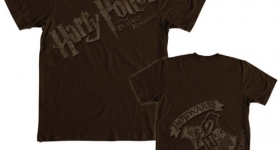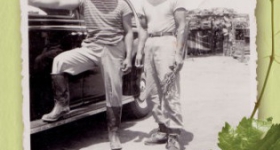I put down Tony D'Souza's Mule: A Novel of Moving Weight at 2:30 am, two days after starting it. The last 90 pages forced me to stay up late, shirking responsibilities in the morning to finish.
Here's the draw: James and Kate are a young middle-class couple riding the excesses of the economic boom with no plan for the future. Then the recession suddenly hits, plus Kate gets pregnant. James happens upon an opportunity to make fifty thousand dollars in four days. All he has to do is drive his car from Siskiyou County, CA, to Tallahassee, FL, and risk his life, the security of his family, and his future. He’s cautioned to “drive fast and swerve a lot,” a send-off joke, because a ten pound brick of weed will be sitting in his trunk. As James’ opportunities for making money and their dangers grow exponentially, so are his limits tested beyond anything he’s imagined. As the stakes get higher and the lure of money keeps him in the game, you keep waiting for the other shoe to drop because you know it’s going to be explosive.
Mule is a timely book, which depicts people in the marijuana trafficking trade as hapless victims of the 2007 recession, Hurricane Katrina, or even casualties of the publishing industry crash. These are ordinary people who are pushed into extraordinary circumstances and for whom survival becomes the impetus for the muling.
One of the more interesting facets of the book is D’Souza’s depiction of James’ changing psychology. At first, James is the good guy merely trying to support his family, while other people in the trade are flashy, excessive, and unsympathetic. But after being powerless for so long, James enjoys being a kingpin in his mini-empire. He feels important because his new status allows him to give opportunities to his less-than successful friends, including Mason, his stoner Korean American buddy. His sense of importance further colors his awareness of the danger he is putting people in when he draws them into his world. Even after amassing a considerable fortune, James cannot stop smuggling because fear of poverty is deeply entrenched in both his and the American psyche. “Out-of-work guys were spinning signs on corners everywhere now. I’d glance away whenever I’d see one. I’d never let what had happened to Kate and me ever happen again.”

Photo of the author by Cameron R. Neilson
The dialogue is spare, the narrative events move rapidly, the characters are mainly sussed out via plot, and D’Souza doesn’t spend a lot of time on description. However, he does give insightful details about how drug traffickers are able to circumvent the law. It’s fascinating to learn along with James everything you need to know about “moving weight” -- from exercising your Fourth Amendment rights, or withdrawing a large amount of cash from a bank without triggering the Feds, to avoiding being a target for highway patrol officers.
One of the downsides of the book is that the relationship between James and Kate isn’t quite believable. Kate shows her concern for James in the beginning but it’s a thin line between loving wife and materialistic social climber who chooses to remain oblivious to the dangers in which her husband is placed. I wondered why James was gambling his life away for a woman who seemed to love him less than shopping at Saks.
There are also very few likeable Asian American characters. Mason is a prominent character who’s well-intentioned, but he’s an unreliable screw-up. There is also brief mention of a scheming underaged Thai prostitute. Most minority characters are untrustworthy or hoodlums and the women in the novel are largely silent.
Despite the drawbacks, Mule is still a quick read that will get your palms sweating and your heart pounding from the high. Though D’Souza isn’t particularly gifted at composing pretty sentences, he does know how to tell a good story. You won’t be disappointed in the come down.
Jenny Yap is a lecturer in the English Department at California State University, East Bay. She wants to “drive fast and swerve a lot.”









Comments